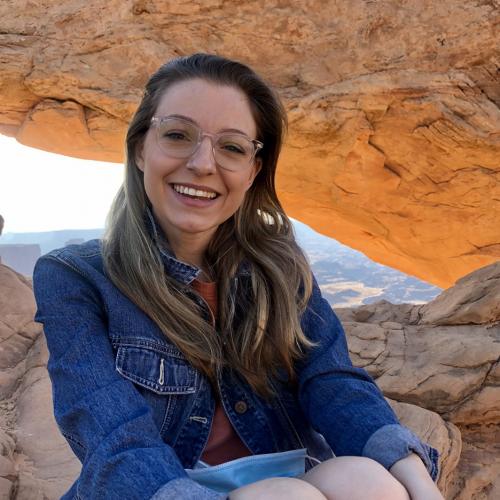A new study conducted by PhD student Morgan Lundy, which was recently published in the International Journal of Communication, reveals how TikTok's unique features have been used to spread COVID-19 misinformation. Unlike Twitter, which uses a text format, the micro-video format of TikTok makes it more difficult to detect deceptive information.
"That's why I lean towards qualitative methods for deeply understanding how misinformation is appearing on TikTok," Lundy said. "The information is passed through such rich media objects—you have sound, visuals, text, body language, captions, and meme elements that require context, and all these factors interact at once to create the 'meaning' or (mis)information that is being shared."
Lundy used a dual approach of algorithm training and hashtag sampling to gain data for her research. She also used methods of searching for "community language" rather than expected terms, to get a much more representative and useful picture of how misinformation looks on the platform. According to Lundy, the incredible reactiveness of TikTok's algorithms' collaborative filtering poses a particular challenge to containing the infodemic.
"The more misinformation you interact with, the more that you see—you can quickly find yourself immersed in massive numbers of TikTok videos relating to COVID-19 vaccine misinformation just after liking a few videos," she said.
Lundy learned that TikTok users who oppose the COVID-19 vaccine use intentionally coded language, misspelled words, and alternate hashtags to evade anti-misinformation efforts. She found that misinformation topics featured in previous COVID-19 vaccine hesitancy literature—parodies of vaccine side effects, concerns about vaccine production and approval, conspiracies about governments and vaccine contents, and claims that COVID-19 is not dangerous—are still prevalent despite public health efforts. Her research illustrated how COVID-19 vaccine misinformation often appears in the form of logical fallacies, where some information may be true but misleads to false conclusions.
"I very much hope that better understanding of how misinformation spreads on TikTok will be helpful to public health officials," said Lundy, who is a member of Assistant Professor Jessie Chin’s research group. "I received some exciting feedback from CDC (Centers for Disease Control and Prevention) and WHO (World Health Organization) contacts of my instructor, Dr. Ian Brooks (iSchool Research Scientist and the Director of the Center for Health Informatics), and it would be wonderful if this paper could in some way contribute to important conversations about health research involving complex videos/images/audio."
